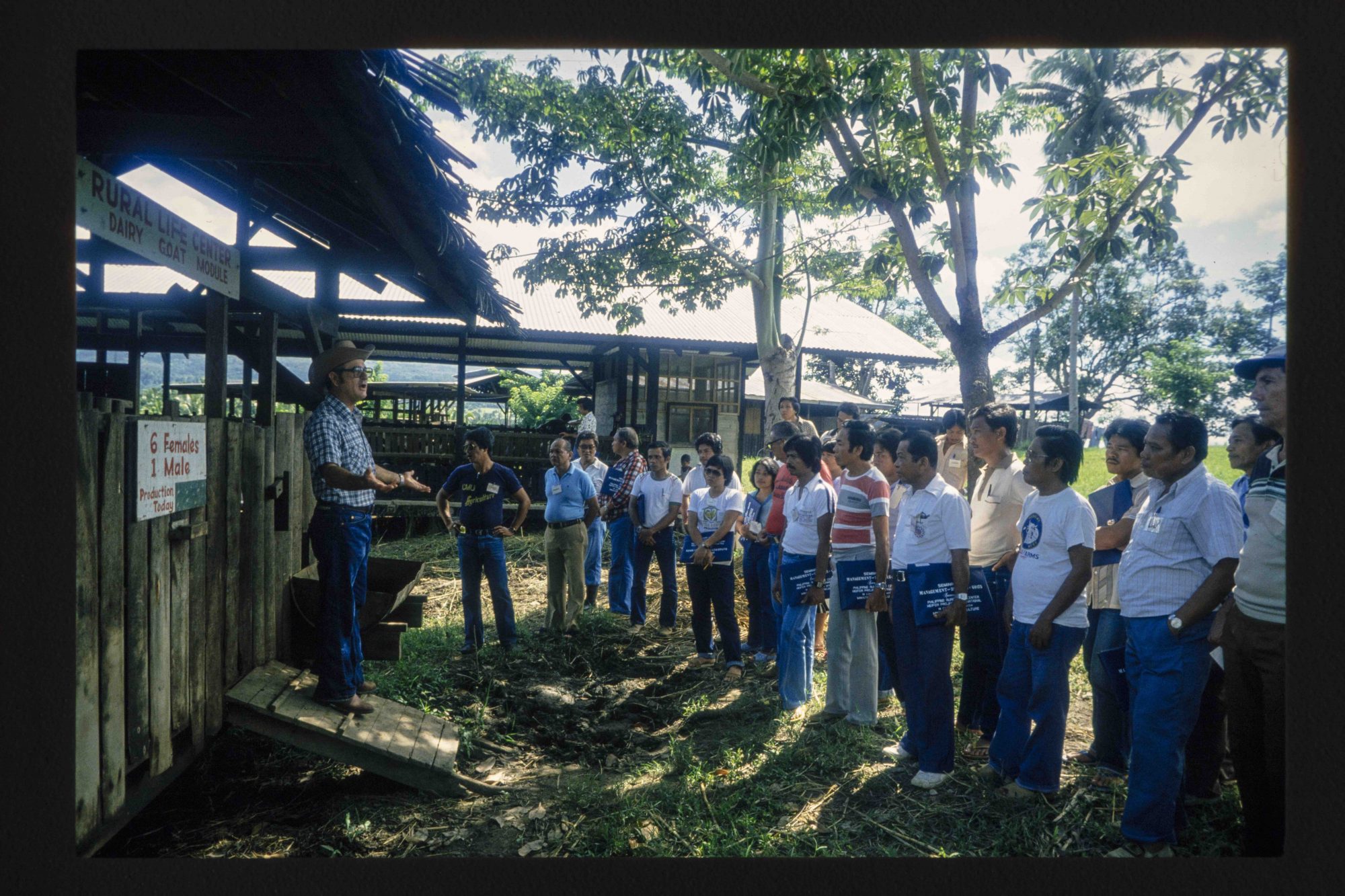Harold Watson and his team at the Mindanao Baptist Rural Life Center in the Philippines never seem satisfied, even when they can see fruits of their labor all around them.
They continue to expand and improve their program to combat hunger and malnutrition by teaching Philippine farmers how to grow crops on steep hillsides. The center’s program is called SALT, for Slanted Agricultural Land Technology. …

SALT basically is a method using inexpensive materials to create terraces on steep hillsides and to protect them from washing away in tropical downpours through planting fast-growing ipil-ipil trees. Besides guarding against erosion, the trees also serve as fences and a source of animal feed, fertilizer and firewood.
Now a new technique is joining the arsenal of weapons against hunger. The Rural Life Center is exploring ways to integrate livestock projects with the regular SALT plan, according to Watson, a career Southern Baptist agricultural evangelist. The need arises because many farmers live far from good roads and transportation and become discouraged by how hard and costly it is to take their produce to market. …
[The new program] demonstrates how to raise animals—cows, goats, pigs—in remote areas using SALT techniques and producing food for the animals.
“The animal is fattened and then is ‘walked’ to public transportation” on its way to market, explains Watson.
[The program] shows how to integrate livestock with field crops and permanent crops, such as coffee and cacao, he says. …
From the first, the Baptists have integrated into their agricultural program the beginning and developing of churches. The Christian purpose of the center is never hidden. Visitors at the center always hear declarations by staff members about their Christian faith. In Bagobo Association, in the area near the center, there are now 36 Baptist churches.
The Baptist Rural Life Center has developed several programs aimed at improving quality of life for rural people and also at sharing the gospel and providing means for Christian growth.
[One project] offers young Filipinos no longer in school an opportunity for training in farming methods, Bible study and other skills, such as how to teach literacy. When the young people return home, they often become models of efficient farming and leaders in local churches.
Watson and staff are developing a new … project for tribal people in an area where Sam Stallings, a general evangelist missionary, has found it hard to blanket his region or to locate trained people to lead churches. The two-tothree-month training in Bible and food production … will act as a “head start” for church expansion, says Watson.
Stallings “expects to see 30 churches a year spring up from this program during the next five years,” Watson adds.
Excerpted from “They’re not through yet,” by Leland Webb, The Commission, Oct.-Nov. 1985, p. 54-55.

